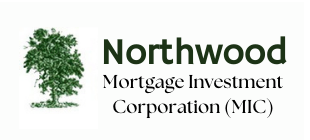The appeal of a longer mortgage may seem palpable, but when contemplating whether it is a choice move, the fine points demand valid consideration. On the surface, borrowers will seek mortgages as long as 40 years for the benefit of a lower monthly payment, but what does broadening out your loan truly convey? There is always a concession of sorts when it comes to negotiating lower monthly payments, and so it is vital to determine if such longer mortgages are essentially worth it. The notable boost in lenders offering longer-term mortgages has been expeditious and is steadily ascending. Analyzing such type of commitment, coupled with assessing your individual needs, will be a distinct advantage to make the most desirable judgment.
Currently, the quintessential term length has a defined principle and interest rate of five years in which, after that period, new terms warrant mediation. The integrated length of the mortgage, precisely the amortization time frame, is typically negotiated over a 25-year period; however, within that vast time frame, there will be a series of defined terms for a set number of years.
Bank of Canada Governor Stephen Poloz explains that although virtually half of Canadians have a fixed interest rate, only 2% of them hold a mortgage term longer than five years. Despite this, financial institutions fundamentally promote long-term mortgages and facilitate this perception on an individual basis for justification. Primarily, this would allow you to avert higher interest rates more frequently. As a homeowner, they will not be denotative of your loan as often, as you will gain more equity between renewals. Overall, fewer loans renewed each year can contribute to a safer financial system and a more stable economy.
There is no singular mortgage situation that applies to the masses, although heightened innovation and flexibility to borrowers by allowing longer-term mortgages will lower risks in the financial system. Poloz solidly anticipates that, consequently, the housing sector will start growing again, providing homebuyers with more choices.
It’s vital to be aware that longer-term mortgages also lack any leverage in terms of bargaining power, more specifically, if interest rates drop and future market predictions are impossible (especially in 10, 20, or 30 years from now). Historically, Canadians have retained lower mortgage fees compared to Americans, with the ability to negotiate the rate every five years. Longer terms also mean it will be more expensive to move your mortgage from one bank to another. The penalty and the interest rate differential would become a prohibitive factor if you did want to shop around.
A longer-term loan symbolizes cost-effectiveness for you, with respect to homeownership, as the potential to renew at a higher interest rate is more infrequent. The choice, singular reason that most Canadians opt for a shorter mortgage term is the lure of interest rates being significantly lower. The Globe and Mail reported that on a 10-year fixed-rate mortgage, interest rates conceivably range from 0.4 to 1% higher than a five-year term. And for a 25-year run, the rates could be an additional five points higher. Poloz recognized this higher price point, yet he contends that “some homebuyers may be willing to pay more to lower their risk.”
Our expert team at Northwood Mortgage has many more answers to simple or more intricate mortgage questions, and we look forward to connecting with you. As one of the most venerated brokerages in the GTA, our team exemplifies prize services and choice products to our clients, lenders, and investors alike.
We invite you to visit us for more insight at Northwood Mortgage.com or talk to us one-on-one for a more personal assessment, fitting your needs, at 1-888-495-4825.






































